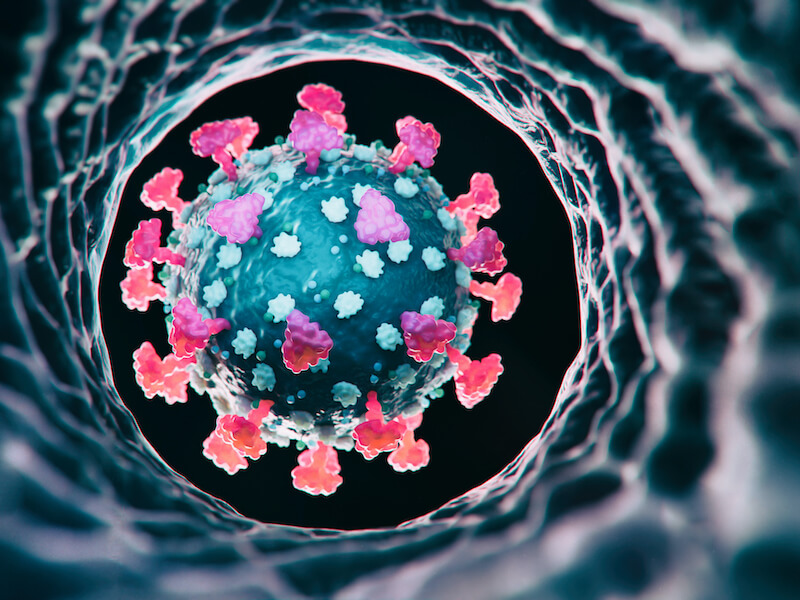
You might develop hearing loss as you get older, particularly if you regularly expose yourself to loud noise. Similarly, if you work on a noisy factory floor and don’t use hearing protection, hearing loss may be in your future. These hearing loss causes are fairly common. But within the last few years, a new cause has entered the fray. Yup, you guessed it, Covid-19.
People all around the world have been ravaged by all of the many symptoms and side-effects of Covid-19, and that may include problems with hearing.
Maybe? Probably? Okay, Covid-19 is still an extremely new virus. And something new about it is being uncovered all of the time by scientists. Some research does indicate that Covid-19 is connected to hearing loss, but that research is also rather preliminary and is still waiting for more data to back it up. So let’s take a look at where things stand right now.
Does the Covid vaccine cause hearing loss?
So here’s the first thing to keep in mind: The Covid-19 vaccine has never been confirmed to cause hearing loss. All of the presently approved vaccines have this in common. Vaccines don’t affect your ears, they just don’t work that way. It would be like eating a nice healthy salad and then claiming that it caused your diabetes.
This is true of both the conventional vaccines and the new mRNA vaccines. Which means that the advantages of these vaccines still greatly surpass the risks for most individuals. Speak with your doctor and find reputable information if you have any questions about vaccines.
Okay… with that off the table, let’s discuss hearing loss.
So how is hearing loss triggered by Covid?
But, how does this trigger hearing loss? Specifically, how does it cause the type of hearing loss that is the result of damage to the auditory system which is normally permanent, known as sensorineural hearing loss?
Scientists have a couple of theories. These theories, we should mention, aren’t necessarily mutually exclusive. They can both be relevant!
Theory #1: inflammation
The first compelling theory among researchers is that Covid-19 causes significant inflammation in the upper respiratory tract, and that this inflammation can ultimately affect your ears. Your ears, nose, and mouth are all connected, after all. This might produce hearing loss in a couple of ways:
- Fluid buildup: Inflammation can make drainage channels narrower, making it harder for fluid to get out or drain efficiently. It becomes harder and harder to hear as this fluid continues to accumulate. After the symptoms subside, your hearing will typically return to normal (this wouldn’t be an instance of sensorineural hearing loss).
- Damaged cells: It’s essential to keep in mind that viruses replicate by hijacking your body’s own cells. The consequence is damage. In some cases, damage to the vascular connections between your brain and your ears takes place because of the way Covid impacts your vascular system. This situation is sensorineural hearing loss and will be basically irreversible.
When hearing loss is a result of a buildup due to inflammation, steroids can sometimes help. There’s still an ongoing effort by scientists to discover a way to prevent sensorineural hearing loss. It’s not clear, based on this research, just how much protection vaccines give you against this sort of damage, but it seems obvious that it’s better than no protection.
Theory #2: Long Covid
The next theory is more substantial when it comes to patients’ experience, but a little less understood with regards to cause and effect. By now, you’ve probably heard about something called Long Covid.
Patients will go through symptoms of Covid when they are experiencing Long Covid, long after they have recovered from the actual virus. Often, a debilitating bout of long Covid that drags out for months, or longer, after having Covid itself, is experienced. There’s no doubt, Long Covid is real, but scientists are still unsure why.
Data about long-term hearing difficulties was systematically reviewed by scientists and a report was published in February 2021. Here’s what the review found:
- 7.6% of people reported hearing impairment after getting Covid.
- Tinnitus was experienced by 14.8%
- Vertigo was reported by7.2% of people
There’s definitely a connection between Long Covid and hearing problems, but it’s unknown if there’s a direct cause and effect relationship. A host of symptoms, including hearing issues, come from Long Covid.
Anecdote or evidence?
When somebody talks about how they got Covid and had hearing issues ever since, that’s an anecdote. It’s only one person’s story. And while it’s a fact of life for them, it’s not necessarily enough for scientists to go on when developing treatment plans. So research is essential here.
As researchers obtain more evidence that these hearing difficulties are relatively prevalent, they’re able to generate a clearer image of the hazards associated with Covid-19.
Of course, there’s still more to learn. Research is continuing, which means the connection between Covid-19 and hearing loss isn’t actually proven or unproven. It’s essential to seek help as soon as possible regardless of how your hearing loss developed. So give us a call if you think you might be experiencing hearing loss.
References
https://www.frontiersin.org/articles/10.3389/fneur.2022.883749/full
https://www.tandfonline.com/doi/abs/10.1080/14992027.2021.1896793?journalCode=iija20&